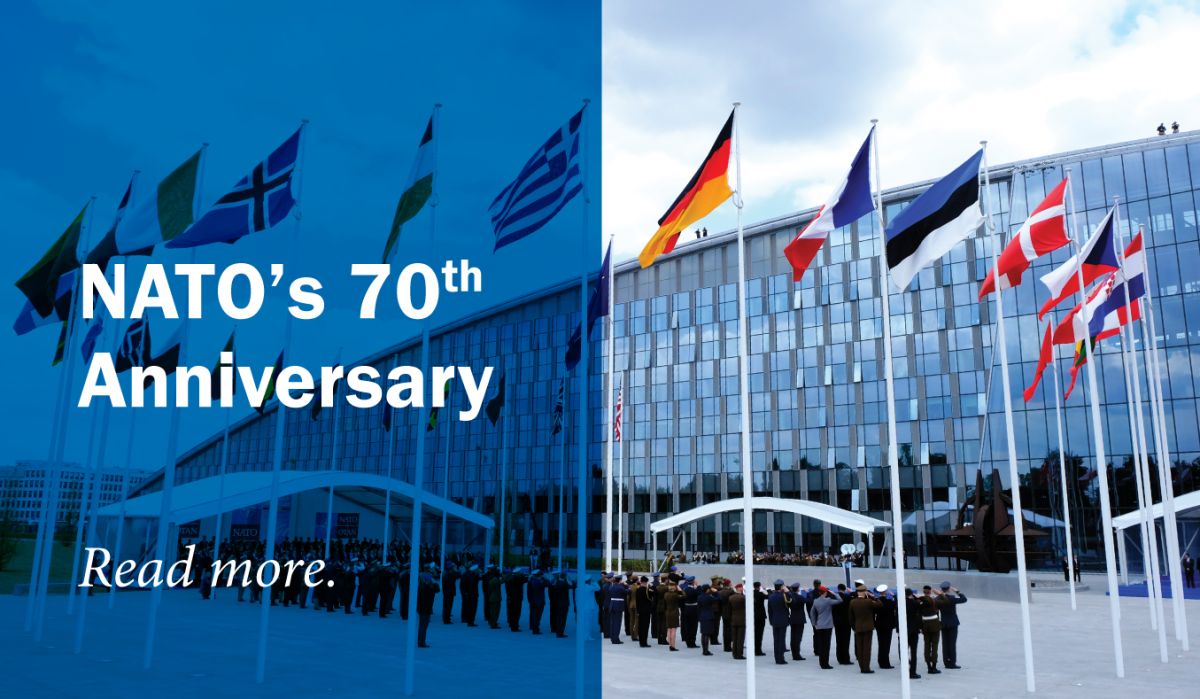Fearing Change in a Vital Institution
"The United States must understand that its allies are its greatest asset in the new great-power competition with China and Russia. And European countries—especially Germany—must start to see themselves as co-shaping powers in Europe." – Ulrich Speck
 For Germany, NATO has been vital in the last decades. The country’s recent history and its successes cannot be disentangled from the existence of the alliance. Without NATO—into which it was admitted in 1955 after a French attempt to build a West European army failed—West Germany’s recovery and resurgence after the Second World War, its integration in the West, and its survival as a frontier state in the Cold War would have been much harder if not impossible. And European integration might not have happened without NATO, as the existence of the alliance reassured Germany’s neighbors and removed the threat of German revisionism—clearing the way toward cooperation.
For Germany, NATO has been vital in the last decades. The country’s recent history and its successes cannot be disentangled from the existence of the alliance. Without NATO—into which it was admitted in 1955 after a French attempt to build a West European army failed—West Germany’s recovery and resurgence after the Second World War, its integration in the West, and its survival as a frontier state in the Cold War would have been much harder if not impossible. And European integration might not have happened without NATO, as the existence of the alliance reassured Germany’s neighbors and removed the threat of German revisionism—clearing the way toward cooperation.
Furthermore, NATO was key for German reunification. It provided the security umbrella under which East and West Germany could focus on social and economic reunification without worrying too much about geopolitics and security. This repeated itself with the unification of Europe after the Cold War, when NATO took care of the external security aspects while the EU focused on internal socioeconomic and political dimension.
NATO also played a central role in the military operations in the Balkans and in Afghanistan, in which Germany was heavily invested. And it has helped keep in check a militarily aggressive Russia in recent years through a renewed focus on territorial defense, a development in which Germany has played a key role.
NATO has been always an instrument of U.S. power in Europe as well as an institution with its own character and significance. The United States has always been the most powerful member by far and yet NATO, as an institution with its mechanisms and specific functions, has always been much more than just a cover for U.S. influence and power. At least formally, the members meet as peers. And with its Brussels headquarters the organization gained considerable weight and became an important center of gravity in transatlantic security.
The current fear in Germany is that the character of NATO as a joint North American and European institution is changing with President Donald Trump—and also as a result of a more general change in attitudes in the United States. While public opinion polls show broad support in the United States for deterrence against Russia via NATO, which also is the object of a bipartisan consensus in Congress, Europeans are nevertheless alarmed by the transactional attitude Trump has shown towards the alliance, by his regular outbursts over allies that allegedly take advantage of U.S. security guarantees without paying their fair share, and by his general contempt for institutions.
If these transatlantic disagreements were to deepen, leading to NATO being dissolved, or losing its relevance as the central institution for military security in Europe, European countries would have either to build security among themselves or try to get bilateral guarantees from the United States, just as countries like Japan and South Korea do in the Asia Pacific. Some European countries, Germany among them, might in such a scenario draw closer to Russia and China, accommodating the two Eurasian powers that have an interest in splitting Europe from the United States and preventing the emergence of Europe as a coherent security player.
All this would massively threaten European stability and could easily lead to new conflicts in and around the continent. It would also further weaken an already threatened liberal, multilateral order which has been the key to Germany’s success story in the last decades. Keeping NATO intact, therefore, is by far the preferable option for the allies. Together with other liberal democracies, the countries of Europe and North America have a far better chance of standing up to autocratic powers and push back against their vision of a world based on dominance and submission.
The challenge for NATO, however, still is to move from a Cold War institution, largely dominated by the United States, to an institution that keeps the transatlantic partners together on a more equal footing and allows them to push back jointly against forces that are trying to weaken the liberal order and to make the world safe for autocracy. If NATO manages such a transformation successfully, it will keep its role at the center of transatlantic security and open a new chapter in its history.
That, however, requires both sides to overcome their frustrations and work out more clearly a new mission. The United States must understand that its allies are its greatest asset in the new great-power competition with China and Russia. And European countries— especially Germany—must start to see themselves as co-shaping powers in Europe and accept that military means are key for the survival of the liberal order in the continent and beyond, and invest accordingly in their militaries.
